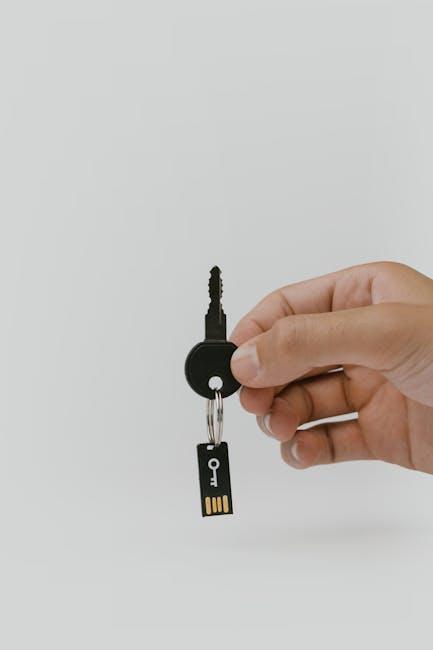In the digital age, where love stories often begin with a swipe or a click, the quest for connection is just a profile away. Yet, as hearts open, so do opportunities for deception. Dating platforms, bustling with potential matches, have become fertile ground for identity thieves, lurking behind charming profiles and well-crafted messages. This article delves into the shadowy side of online romance, offering essential strategies to safeguard your personal information while navigating the exhilarating, yet perilous, world of digital dating. Whether you’re a seasoned swiper or a hopeful newcomer, arm yourself with the knowledge to protect your heart and identity alike.
Navigating Love and Security: Essential Tips for Online Daters
In the quest for love online, safeguarding your identity is paramount. Begin by creating a strong, unique password for your dating profiles. Consider using a password manager to keep your credentials secure. Never share personal details such as your full name, address, or financial information with someone you’ve just met. Be cautious of profiles that seem too good to be true; they often are.
Here are some practical tips to enhance your online security:
- Use a dedicated email address for dating sites to separate your personal and professional communications.
- Verify profiles through video calls before sharing personal details.
- Report suspicious behavior to the platform immediately.
- Regularly update your privacy settings to control what information is visible to others.
By taking these steps, you can enjoy the online dating experience while protecting yourself from potential identity theft.

Recognizing Red Flags: Identifying Scammers and Fake Profiles
In the digital world of online dating, it’s crucial to be vigilant about potential scams and fraudulent profiles. Here are some key red flags to watch out for:
- Incomplete Profiles: Scammers often have sparse profiles with minimal information. Be wary of profiles lacking photos or personal details.
- Too Good to Be True: If someone appears excessively charming or their life seems perfect, it could be a façade. Trust your instincts.
- Inconsistent Communication: Pay attention to inconsistencies in their stories or changes in their writing style. This can indicate multiple people managing the profile.
- Requests for Money: Never send money to someone you haven’t met in person. Scammers often fabricate emergencies to manipulate you into helping them financially.
- Avoidance of Video Calls: If they constantly avoid video chats or face-to-face meetings, it might be a sign they are not who they claim to be.
By staying alert and recognizing these warning signs, you can protect yourself from falling victim to identity theft and enjoy a safer online dating experience.

Guarding Personal Information: Best Practices for Privacy Protection
When using dating platforms, safeguarding your personal information is crucial to maintaining your privacy. Here are some best practices to consider:
- Limit Profile Details: Avoid sharing sensitive information like your full name, address, or workplace. Use a nickname or just your first name to maintain a level of anonymity.
- Be Cautious with Photos: Choose photos that don’t reveal identifiable locations or personal details. Avoid using the same profile picture across different social media platforms.
- Secure Communication: Use the platform’s messaging service instead of personal email or phone number until you feel comfortable. This adds an extra layer of security.
- Monitor Your Accounts: Regularly check your bank and credit card statements for any unauthorized transactions. Setting up alerts can help you quickly identify suspicious activity.
- Stay Updated: Keep your device’s software and apps updated to protect against security vulnerabilities. Use strong, unique passwords for each platform.

Building Trust Safely: Communicating with Caution and Confidence
Engaging in online dating can be an exciting journey, yet it’s essential to approach communication with a balance of caution and confidence. Protecting your identity starts with sharing the right amount of information. Here are some tips to help you communicate safely:
- Use a Nickname: Instead of your full name, choose a unique username or nickname that doesn’t reveal personal details.
- Be Selective with Information: Avoid sharing your home address, work details, or any financial information early on.
- Verify Profiles: Look for inconsistencies in their stories or pictures. Cross-check their social media presence if possible.
Communicate with confidence by setting clear boundaries. Trust your instincts and be prepared to walk away if something feels off. Remember, genuine connections respect privacy and boundaries.




